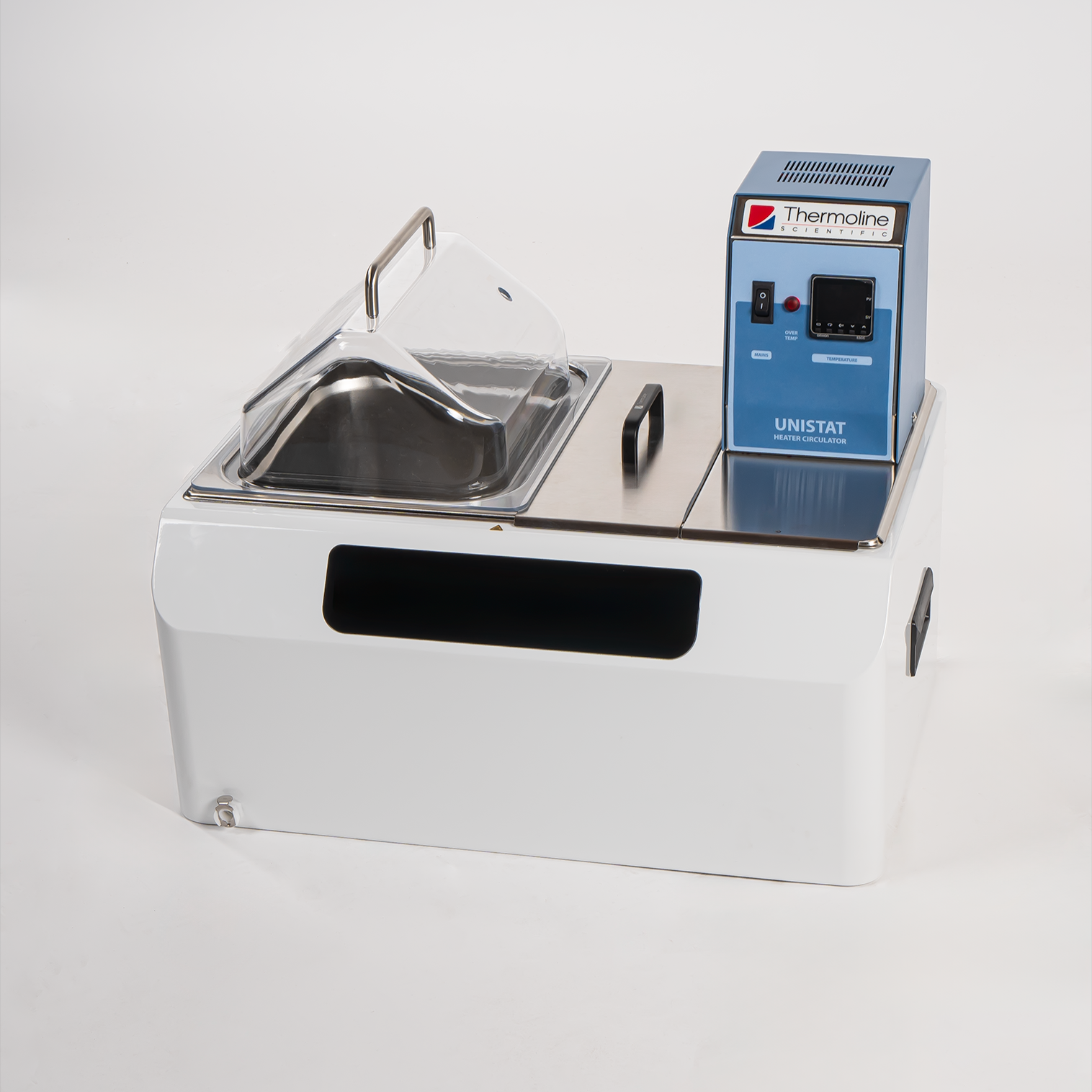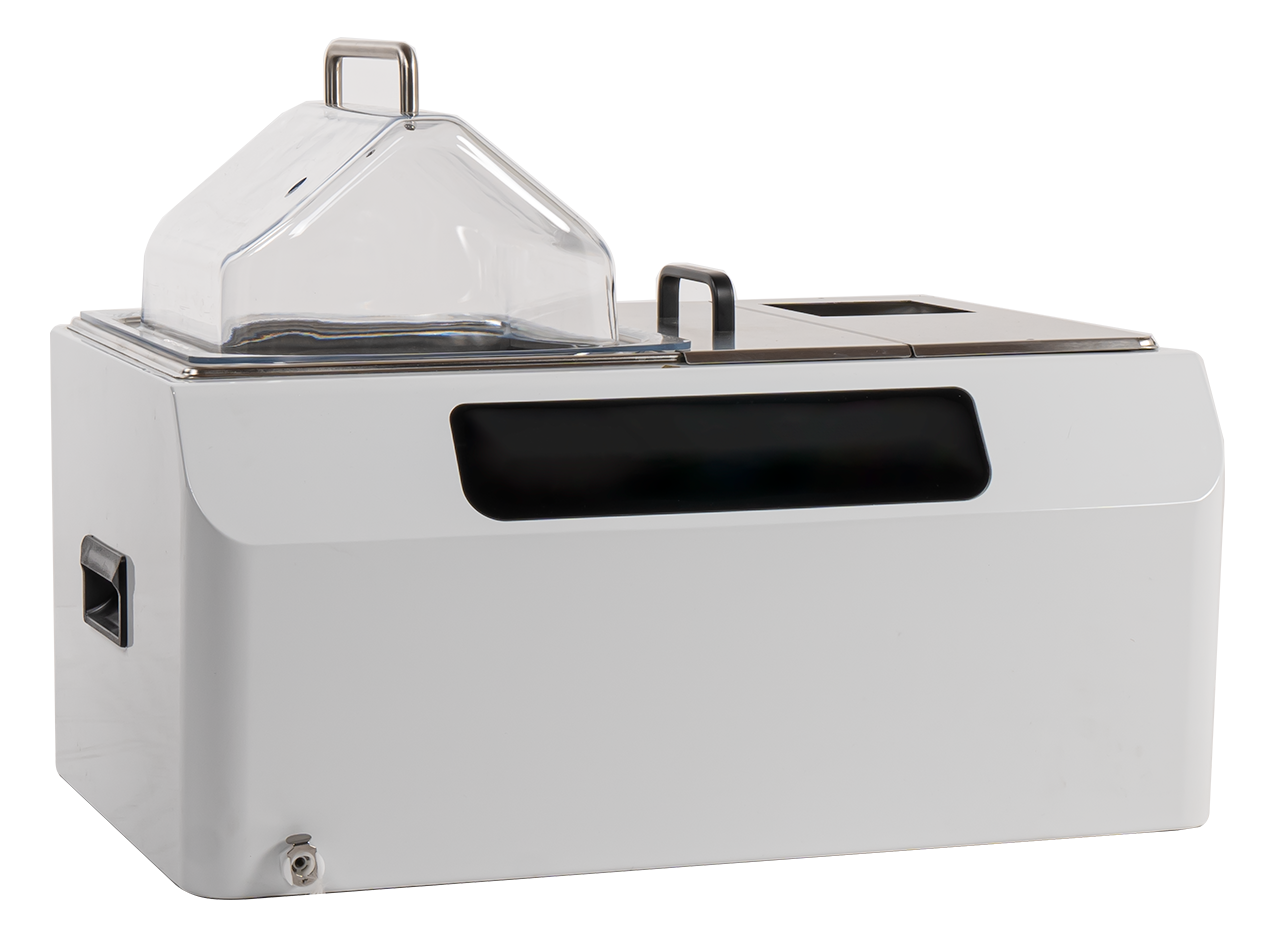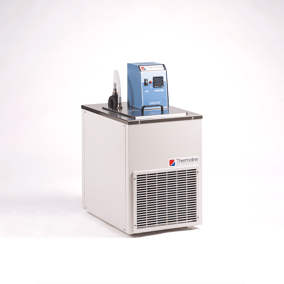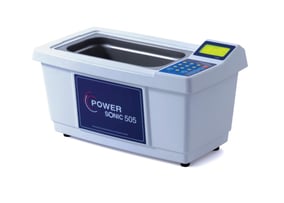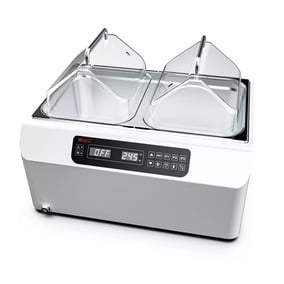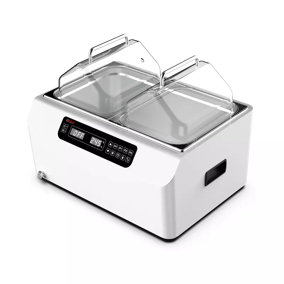Circulated Water Bath (Heater Circulator Sold Separately) TWB-24NE-4E
The circulated water bath range consists of a stainless steel tank that is filled with water and heated to a precise temperature using an electric heating element.
The water is then circulated throughout the bath using the TU3 heater circulator, creating a uniform temperature throughout the bath.
Overview
The water bath is a fundamental piece of equipment in any laboratory. As a leading manufacturer and supplier of laboratory equipment in Australia, Thermoline offers a range of quality laboratory water baths to suit various applications.
Circulated water baths are often used to maintain a constant temperature for experiments or keep samples at a specific temperature for extended periods. They are particularly useful for experiments that require a stable temperature environment, such as in molecular biology, microbiology, and chemistry. The ability to set and maintain a specific temperature ensures that experimental results are consistent and reliable.
Circulated Water baths have a wide range of applications in various fields, including biomedicine, life sciences, and industrial. They are also commonly used in commercial kitchen cooking methods like Sous Vide. Some specific applications of circulated water baths include sample thawing, bacteriological examinations, reagent warming, coliform determinations, and microbiological assays.
The tank is pressed stainless steel, which features seamless corners for easy cleaning and no opportunity for bacteria growth or dirty crevices. The temperature is set and controlled by the addition of the Thermoline TU3 heater circulator (sold separately), which is neatly mounted on a bridge across the top of the bath.
Also available in the circulated bath range is the TWB-24CP-4E, which incorporates its own built-in circulating pump. The pump is mounted under the tank, draws water in at one end of the bath, and pumps it through to the other. This encourages a gentle flow across the heated floor, giving better temperature uniformity and quicker recovery times than uncirculated baths.
Technical Data
-
Capacity24L
-
Models AvailableOne
-
Temperature RangeN/A
Support
At Thermoline, we strive to supply helpful customer support to ensure that you get the most out of our products. We are committed to providing whatever support our customers need, wherever they are in the world. If you can't find your solution in the below FAQs or Knowledge Base, please contact our friendly support team.
- What is the temperature accuracy of the TU3 heater circulator?
- The Thermoline TU3 heater circulators are accurate to within +/- 0.2°C.
- What are laboratory water baths used for?
Laboratory water baths are a type of laboratory equipment that are used for a variety of applications, including:
-
Warming and thawing samples: Water baths can be used to quickly and uniformly warm or thaw samples, such as reagents or frozen biological specimens, to a specific temperature.
-
Incubating and culturing samples: Water baths can be used to incubate samples at a controlled temperature for a specified period. This is commonly used in microbiology and molecular biology applications, such as growing bacterial cultures, conducting enzyme assays, and hybridisation.
-
Heating and maintaining consistent temperature for reactions: Water baths can be used for heating and maintaining a constant temperature for chemical and biochemical reactions, such as PCR amplification, DNA melting, and protein denaturation.
-
Melting point determination: Water baths can be used for determining the melting point of solid samples, such as organic compounds.
-
- Should I use an uncirculated laboratory water bath or a circulated laboratory water bath?
The choice between using an uncirculated laboratory water bath or a circulated laboratory water bath depends on the specific requirements of your experiment or application.
An uncirculated water bath can be suitable for certain applications, such as when you need to maintain a consistent temperature in a sample or material that is not sensitive to temperature variations or if your sample is prone to be 'knocked over' by water currents due to its weight and shape. However, a circulated water bath is preferred for most laboratory applications because it provides more consistent and uniform heating.
A circulated water bath typically has a built-in pump that circulates water throughout the bath, ensuring a more even temperature distribution.

